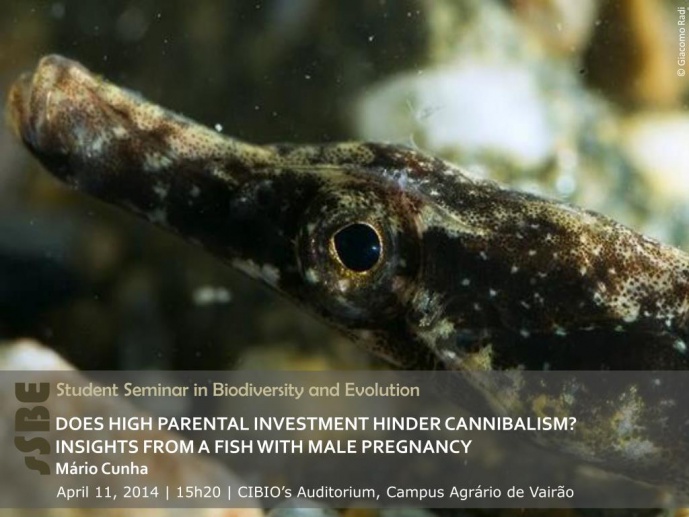DOES HIGH PARENTAL INVESTMENT HINDER CANNIBALISM? INSIGHTS FROM A FISH WITH MALE PREGNANCY

STUDENT SEMINAR IN BIODIVERSITY AND EVOLUTION

Cannibalism, the act of killing and at least partially eating a conspecific, is a widespread behavior in the animal kingdom. Despite being deemed as a bizarre behaviour, the cannibal gains direct benefits like energy and reduced intraspecific competition. Nevertheless, cannibalism may also have costs if directed to offspring or other relatives, thus reducing the cannibals' fitness.
Species of the family Syngnathidae (seahorses, seadragons and pipefish) are generally known for male pregnancy where nutrient provisioning to the embryos increases paternal investment in reproduction. Due to the high investment in the brood, filial cannibalism by a syngnathid male should probably be a rare or absent occurrence. Contrastingly, cannibalism from females and non-pregnant males are expected to be much more prevalent as, apart from energetic advantages, it would decrease the fitness of potential competitors. Here we assess how sex, mating status and food availability affect the expression of this behaviour in the black-striped pipefish, Syngnathus abaster.
With a degree in aquatic sciences, from the Institute of Biomedical Sciences (ICBAS), University of Porto and a Master’s Degree in biology from the University of Uppsala, Mário is currently enrolled in the BIODIV Doctoral Programme. Now in the beginning of his second year, Mário is carrying out his PhD project under the supervision of Nuno Monteiro (CIBIO-InBIO) and Anders Berglund (Uppsala University).
Image credits: Giacomo Radi